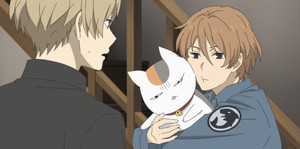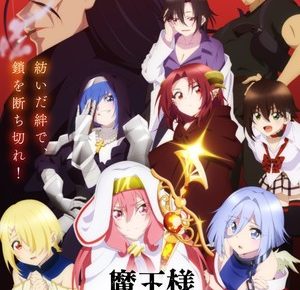In today’s episode review of "Blue Box," we dive into the emotional dynamics of episode six, titled "Wish Me Luck." This episode maintains the delicate balance of teenage drama while exploring complex character interactions, as seen in the vibrant journey of Hina and her entanglement in a love triangle. Let’s dissect this episode further, focusing on its portrayal of intricate relationships, character development, and the storytelling that sets "Blue Box" apart from many other anime.
Table of Contents
The Essence of Teenage Melodrama
"Wish Me Luck" opens with Hina grappling with the discovery of Taiki and Chinatsu living together. This pivotal moment could have spiraled into typical melodrama, however, "Blue Box" manages to handle the situation with a maturity that is refreshing in the genre. Instead of drawing out confusion and misunderstandings typical of such narratives, Hina promptly seeks clarity by directly addressing Taiki and Chinatsu, setting a mature tone for the unfolding drama.

Hina’s Emotional Journey
Hina’s character arc is at the forefront in this episode, showcasing her emotional turmoil and growth. Her internal conflict is palpable as she navigates the complexities of her feelings for Taiki. This episode does an exceptional job in showing Hina’s vulnerabilities, allowing viewers to empathize with her situation.
The Intricacies of Friendship and Love
Hina’s journey is not just a depiction of blossoming feelings but also an exploration of the transition from a close childhood friendship to deeper emotions. Her attempts to understand her evolving relationship with Taiki, highlighted during her ribbon dancing practice, speak to anyone who has experienced similar emotional dilemmas in their adolescent years.
Taiki and Chinatsu: The Silent Protagonists
While Hina takes center stage in this episode, Taiki and Chinatsu’s roles cannot be understated. Their understated yet impactful presence adds depth to the narrative. However, the episode’s focus on Hina inadvertently leaves Chinatsu somewhat underexplored, leaving audiences yearning for a more balanced portrayal that does justice to her character.
A Ballet of Emotions
The animators deserve commendation for their work, particularly in the beautifully rendered dance scenes that elevate the tension and beauty of Hina’s emotional struggle. These visual aesthetics not only enhance the storytelling but also spotlight the talents behind the animation, contributing significantly to the show’s allure.
The Broadening Narrative
Despite the episode’s heavy focus on Hina, a brief look into Chinatsu’s perspective enriches the narrative. Her awareness of the emotional complexities she’s part of adds an insightful layer to her character. Although this glimpse is limited, it holds promise for future episodes, suggesting that Chinatsu’s character will eventually receive the nuanced exploration it deserves.
Streaming and Reactions
With each new installment, "Blue Box" engenders anticipation and speculation from its audience. Rated at 4.1 by the community, this episode illustrates why the series continues to captivate viewers—its deft handling of relatable teenage experiences and the universal theme of navigating new emotions resonates deeply with its audience. Currently, the series is available for streaming on Netflix, allowing fans to stay up to date with the unfolding drama.
Final Thoughts
"Blue Box" episode six, "Wish Me Luck," artfully balances character introspection with compelling narrative progression, highlighting the beauty of teenage growth and self-discovery. While the episode places significant weight on Hina’s emotional journey, it paves the way for further character exploration, particularly for Chinatsu, leaving viewers eager for subsequent episodes. As the story develops, the hopes lie in meeting the audience’s expectations of a rich and equal spotlight on all characters involved.
In conclusion, while "Blue Box" could nail its balance between characters better, it remains a delightful watch for those seeking a heartfelt, realistic portrayal of youthful fate and complicity. For more anime insights and discussions, followers can connect with James, who shares his thoughts on Twitter and writes extensively on his blog.


